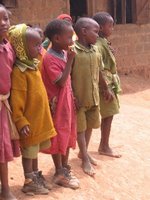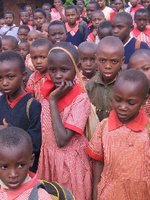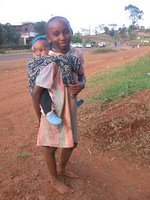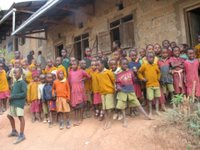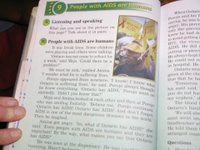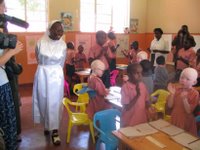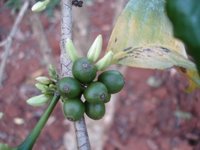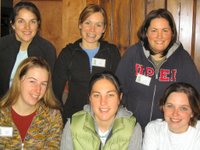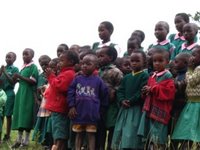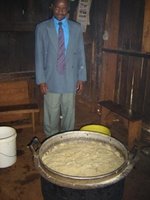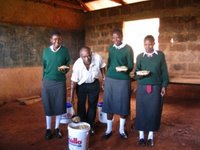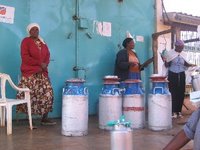A Letter From The Pre-Service Teachers
March 23, 2006
Salama, Muri Ega ? (Hello, how are you?)
It has been 12 days since we arrived in Mukurwe-ini and everything is going great. We have just completed our 2nd week of teaching at Mwati, Gathukamundu, and Kihuti. The schools vary in resources and facilities but the children are the same throughout... pleasant and eager to learn.
We are trying to adapt to a variety of Kenyan dishes, but our favorite foods are Mahinda's samosas, doughuts, and chips (french fries). On the weekends we cook for ourselves. It was a different experience going into one of the markets in town to shop for potatoes and carrots. We make up 5 of the 7 white people in the area so we get a lot of stares, but the people here are very friendly and have generously welcomed us into their community.
This week we started one of our community projects which was to assist with the girls' football (soccer) team at Kihuti secondary. Every Tuesday and Thursday we join the girls in some drills and then scrimmage. Today we presented the team with new training jerseys, cones, and a soccer ball generously donated by the Soccerstop in Charlottetown. The girls were very excited to have their own equipment as it assists to their training. We have been introducing them to drills common in Canada and they are catching on quickly. Even though most of the girls are without proper football equipment like shoes, shinpads, and shorts, they compensate with their positive attitudes and athletic ability. The girls would fair very well playing soccer in PEI.
We are excited to start more community projects. On Saturday we are planning on planting some nappier grass, beans, and maize at Gathukamundu Primary, as well as with a local family in the afternoon. On Monday we are planning on documenting "A Day in the Life of a Kenyan Student from Mwati Primary". Apparently he has an adventurous journey to school each day. We are also meeting with Gerald, Manager of Wakulima Dairy to discuss the work that needs to be done with HIV/AIDS counseling in the community.
We are very much looking forward to next weekend when we will be going on two different Safaris. Besides the animals we saw in Nairobi (zebra, giraffe, gazelles) the only wildlife we have seen are the lizards, crickets, and bats that call our house home.
Tigwo Nawega (Good-bye)
Jessica B, Meredith C, Shauna G, Jessica H, Nora M



